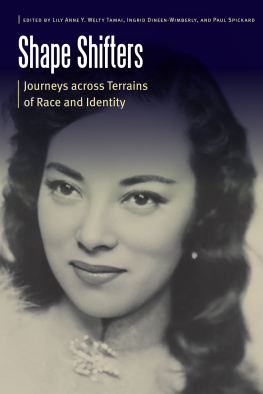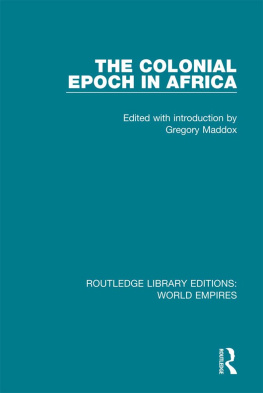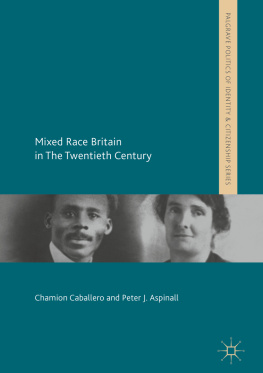
Miscegenation, Identity and Status in Colonial Africa
Throughout the nineteenth and early twentieth centuries the colonial administrations in British East-Central African colonies considered interracial sexual liaisons to be a serious and recurrent problem. Consequently, interracial sexual liaisons (concubinage and marriage) and the mixed race progeny that resulted from these liaisons led to protracted discussions and enactment of policies which addressed questions about concubinage, marriage, racial identity, sexual morality and the status of persons of mixed race in British East-Central Africa.
Using archival sources and secondary literature, the author highlights how colonial interracial intimate encounters became intertwined with conceptions of race and what it meant to be European, African (native) and racially mixed. Intended for students and scholars interested in the study of race and sexuality in colonial Africa, the book will provide an understanding of why interracial liaisons despite rigid racial barriers were not easy to legislate against.
Lawrence Mbogoni is Professor in the Department of Africana-World Studies at William Paterson University, USA.
Routledge Studies in the Modern History of Africa
This series includes in-depth research on aspects of economic, political, cultural and social history of individual countries as well as broad-reaching analyses of regional issues.
Themes include social and economic change, colonial experiences, independence movements, post-independence governments, globalisation in Africa, nationalism, gender histories, conflict, the Atlantic Slave trade, the environment, health and medicine, ethnicity, urbanization, and neo-colonialism and aid.
Colonialism on the Margins of Africa
Edited by Jan Zhok and Linda Piknerov
Power, Culture and Modernity in Nigeria
Beyond the Colony
Oluwatoyin Oduntan
African Testimony in the Movement for Congo Reform
The Burden of Proof
Robert Burroughs
Human Rights in Sierra Leone, 17872016
The Long Struggle from the Transatlantic Slave Trade to the Present
John Idriss Lahai
Miscegenation, Identity and Status in Colonial Africa
Intimate Colonial Encounters
Lawrence Mbogoni
Miscegenation, Identity and Status in Colonial Africa
Intimate Colonial Encounters
Lawrence Mbogoni
First published 2019
by Routledge
2 Park Square, Milton Park, Abingdon, Oxon OX14 4RN
and by Routledge
52 Vanderbilt Avenue, New York, NY 10017
Routledge is an imprint of the Taylor & Francis Group, an informa business
2019 Lawrence Mbogoni
The right of Lawrence Mbogoni to be identified as author of this work has been asserted by him in accordance with sections 77 and 78 of the Copyright, Designs and Patents Act 1988.
All rights reserved. No part of this book may be reprinted or reproduced or utilized in any form or by any electronic, mechanical, or other means, now known or hereafter invented, including photocopying and recording, or in any information storage or retrieval system, without permission in writing from the publishers.
Trademark notice: Product or corporate names may be trademarks or registered trademarks, and are used only for identification and explanation without intent to infringe.
British Library Cataloguing-in-Publication Data
A catalogue record for this book is available from the British Library
Library of Congress Cataloging-in-Publication Data
Names: Mbogoni, Lawrence Ezekiel Yona, author.
Title: Miscegenation, identity and status in colonial Africa : intimate colonial encounters / Lawrence Mbogoni.
Description: New York : Routledge, 2019. | Series: Routledge studies in the modern history of Africa
Identifiers: LCCN 2018040002 (print) | LCCN 2018040493 (ebook) | ISBN 9781351667906 (web pdf) | ISBN 9781351667890 (epub) | ISBN 9781351667883 (mobipocket) | ISBN 9781138061453 (hardback) | ISBN 9781315162331 (ebook)
Subjects: LCSH: MiscegenationAfrica, SouthernHistory. | Racially mixed peopleAfrica, SouthernHistory. | Racially mixed peopleRace identityAfrica, SouthernHistory. | Great BritainColoniesAfricaRace relationsHistory.
Classification: LCC DT1058.R33 (ebook) | LCC DT1058.R33 M37 2019 (print) | DDC 967.0040596021009034dc23
LC record available at https://lccn.loc.gov/2018040002
ISBN: 978-1-138-06145-3 (hbk)
ISBN: 978-1-315-16233-1 (ebk)
Typeset in Times New Roman
by Wearset Ltd, Boldon, Tyne and Wear
For Bonaventure Swai and Chernoy Sesay In memoriam
Contents
I first became interested about intimate relations between European men and African women in colonial Africa when I was doing research about the Lupa gold rush which occurred in colonial Tanzania during the 1930s. An Englishman, J. R. Cresswell-George, was one of hundreds of Europeans who flocked to the Lupa wilderness upon hearing about the discovery of gold there. Cresswell-George spent a brief time on the Lupa goldfields before returning to England. Upon his return to England, he made an official complaint to the Colonial Office about what he had seen and considered to be unacceptable European sexual behavior, namely that some Europeans in colonial Tanzania lacked self-respect and molested African women. His concern was that such behavior lowered the dignity and racial prestige of the British, which was in his view essential in legitimating Britains colonial mission to civilize Africans. Although the complaint lodged by Cresswell-George suggests some kind of sexual abuse and depravity on the part of the European men, it did not reflect the nuanced complexities and contradictions that characterized interracial sexual relations this book sets out to tell.
In British East and Central Africa, interracial sexual liaisons between European men and African women resulted in a growing population of persons of mixed race whose identity and status in colonial society became a matter of concern. The emergence of persons of mixed race raised questions in official circles about how to define and treat them. On their part, persons of mixed race in Northern Rhodesia, Southern Rhodesia, Nyasaland and Swaziland organized themselves and put pressure on colonial administrations to recognize them as separate and distinct people from Europeans and Africans although they preferred to be accorded privileges commensurate with European status.
Many mixed race children were abandoned by their European fathers and had to be raised by their mothers. Some were not only abandoned by their European fathers but were forcibly taken away from their African mothers and put in so-called orphanages and boarding schools which were run by various Christian denominations. This was especially the case in Northern Rhodesia, Southern Rhodesia, Nyasaland and Swaziland. By growing up without the benefit of being raised by their own biological parents some of them developed conflicted personalities. Written evidence about the psychological need of a child to know his own father is hard to come by. Therefore I was not able to examine in depth this aspect in relation to mixed race children who were abandoned by their European fathers.







